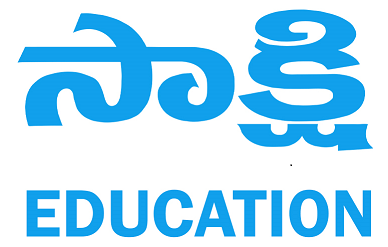21st August, 2024 Current Affairs
Sakshi Education

NATIONAL
Union Minister Shri Manohar Lal Khattar Launches Portal for Online Monitoring Of Projects – Thermal (PROMPT)
- The Union Minister of Power and Minister for Housing and Urban Affairs, Shri Manohar Lal, today launched Portal for Online monitoring of Projects – Thermal (PROMPT) in New Delhi.
- The electricity is the key driver for the ongoing economic activities in the country. Accordingly, the demand for power is also increasing therefore completion of ongoing schemes and thermal projects in timebound manner is extremely critical. "The launch of the portal PROMPT will enable transparent, coordinated, and effective working of the power sector in the country.
Key Features and Advantages of PROMPT:
- Real-Time Tracking and Analysis: The portal provides a centralized platform for monitoring all aspects of project execution, enabling swift identification and resolution of potential issues.
- Transparency and Accountability: By digitizing the monitoring process, the portal ensures greater transparency in project management, leading to timely resolution of issues, reduction in time and cost overruns, and enhanced project execution efficiency.
- Resource Optimization: The portal supports predictable resource availability, aiding in meeting the country's electricity demand at a reasonable price, ultimately benefiting consumers.
Also Read: Top 30 MCQs on Ministries and Their Portfolios 2024: Who handles the Ministry of Heavy Industries?
>> Download Current Affairs PDFs Here
Download Sakshi Education Mobile APP

INTERNATIONAL
China Approves $31 Billion for 11 New Nuclear Reactors Across Five Sites
- China has approved the construction of 11 new nuclear reactors across five sites, with a total investment of approximately 220 billion yuan ($31 billion). This marks a record number of permits as the government intensifies its reliance on nuclear energy to reduce carbon emissions. The State Council’s approval includes reactors in Jiangsu, Shandong, Guangdong, Zhejiang, and Guangxi. The construction is expected to take about five years.
- China, already leading globally in nuclear reactor construction, plans to approve around 10 new reactors annually for the next three to five years. With 56 reactors currently in operation, nuclear energy now accounts for about 5% of the country’s total electricity demand. By 2030, China is projected to surpass France and the U.S. as the world’s largest atomic power generator.
- The new projects feature advanced reactor designs, including a high-temperature gas-cooled reactor at the Xuwei plant in Jiangsu, to be operated by CNNC. This fourth-generation reactor provides both heat and electricity with enhanced safety features. The Hualong One reactor design, which utilizes mostly Chinese-made components, continues to dominate new projects, with two reactors approved for CNNC and six for CGN.
Nepal To Export 1000 MW Electricity To India
- Nepal will export nearly 1,000 MW of electricity to India described the development as a “new milestone“.
- Discussed the multifaceted India-Nepal cooperation including in energy, trade, connectivity and infrastructure development.
- Bilateral cooperation between India and Nepal spans various sectors including trade, energy, water resources, health and education infrastructure, and cultural exchanges. Recent years have also seen a continued momentum in major infrastructure and connectivity projects in Nepal
- In 2017, India pledged to provide financial assistance of USD1 billion to Nepal for reconstruction in areas hit by the 2015 earthquake.
- This included a grant of USD 250 million for Housing (USD 100 million), Education (USD 50 million), Health (USD 50 million), and Heritage (USD 50 million). The remaining USD 750 million is in the form of a Line of Credit (LoC).
- Additionally, since 2003, the Government of India has undertaken over 551 High Impact Community Development Cooperation (HICDPs) in Nepal across various sectors, completing 490 projects. These projects are part of the ‘Nepal-India Development Cooperation’ initiative.
SCIENCE AND TECHNOLOGY
New study on quantum nonlocality expands scope of its use
- Scientists have demonstrated that a universal standard for measuring and quantifying non-local quantum correlations is not possible. Quantum nonlocality describes a strange connection between distant physical objects, one that doesn’t allow for faster-than-light communication.
- This new research broadens the potential applications of quantum non-local correlations, which are already used in secure communication, random number generation, and cryptographic key creation. From its inception, quantum nonlocality has garnered significant attention due to its universal appeal in natural science, continuing to influence recent advancements in device-independent technologies.
- In quantum systems with multiple, distant parts, correlations appear that cannot be explained through local realism. Bell’s theorem was subsequently confirmed through experiments, establishing the nonlocal nature of the quantum world and was recognized with the 2022 Physics Nobel Prize. Quantum nonlocality has since become a key resource for secure communication, random number certification, and cryptographic key generation, making it important to understand how to measure and compare these quantum correlations.
Published date : 21 Aug 2024 05:03PM




















